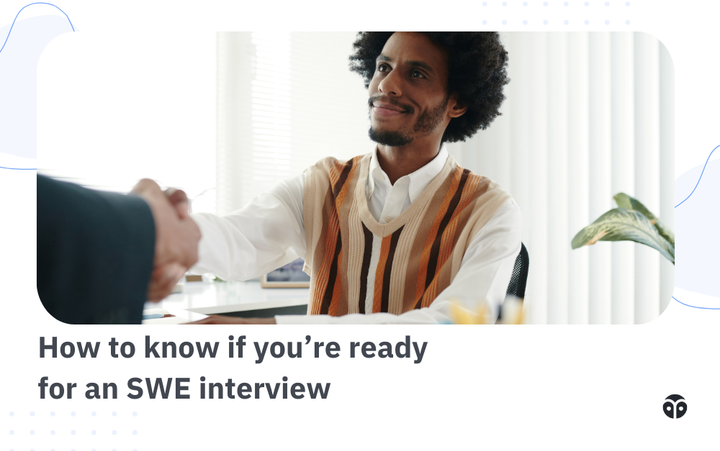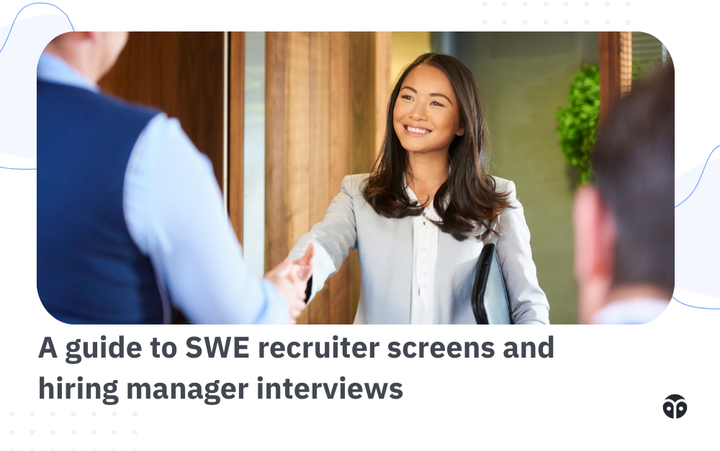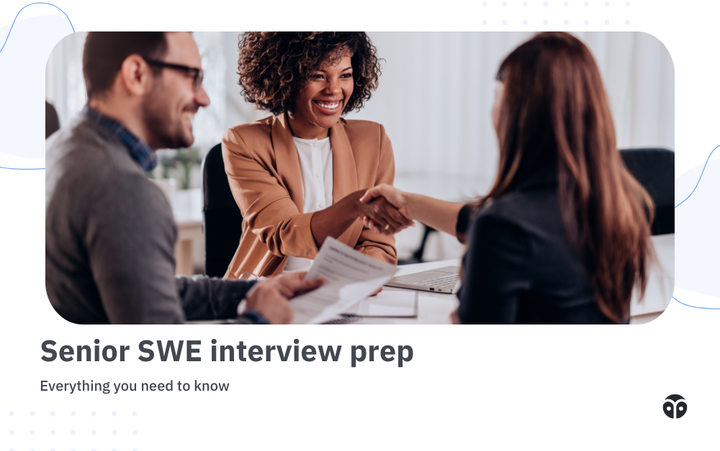Questions to ask during a software engineering interview loop
Here's a list of questions to ask at every stage of the interview process.

When preparing for an interview, it's easy to get caught up in making sure you present yourself as the perfect candidate. But it's equally important to remember that an interview is a two-way street. You’re being evaluated for your fit within the company, AND you’re assessing whether this company and role align with your career goals and values.
Asking insightful questions during the interview process can help you gather the essential information you need to make an informed decision, and having the right questions at each stage can provide a clearer picture of what working at the company would be like.
Here are key questions you should consider asking at different stages of the interview process.
A framework for asking questions
When coming up with questions to ask during the interview process, start with your values. Consider what you want in a job. What's important to you? Your questions might differ from someone else's, and that’s okay. There's no right or wrong answer—what’s important is that you have all the information you need to make a good decision for you.
Remember that you and your interviewer are equals in the room. They’re interviewing you for a role, but you’re interviewing them, too.
Consider:
- Are you being treated well during the interview?
- Are they respectful when debating solutions?
- Would you want to work with them?
When they ask if you have any questions, think about what you need to know to make a good decision if they give you an offer. This varies from person to person.
If you can't think of any questions, these can be a good fallback to provide valuable insights into the team, company, and culture:
- "What's your favorite thing about working here?"
- "What's the best part of your team?"
- "What's one thing you would change?"
Save financial and promotion discussions for the negotiation phase. You can delve into the evaluation process and promotion timelines when talking to recruiters. But in the interview, avoid questions that seem overly money-motivated and focus on other aspects of the job to avoid rubbing interviewers the wrong way.
Formulas for smart questions
Asking insightful questions at each stage of the interview process demonstrates your interest in the role and preparation for the interview. It also helps you make an informed decision.
Here are some formulas to help you develop questions that will give you the information you need while making a lasting impression on your interviewer:
- [Share something about yourself] + [ask open-ended “what”/“how” question]
- [Share Company-related research you’ve read] + [ask open-ended “what”/“how” question]
- [Share Person-related observation] + [ask open-ended “what”/”how” question]
Examples:
- I saw on LinkedIn that you previously worked at [Former Company] and joined [New Company] about a year ago. What convinced you to leave [Former Company] and join [New Company]?
- In my experience working with product managers, they have typically driven timelines and prioritized business needs to decide which features to work on. How does it work at [Company]?
- I recently read that the Company shipped the [feature name] feature, which seems like a completely new direction. How has that impacted next year's forecast?
Questions to ask recruiters
Recruiters provide valuable insights into the company, role, and interview process. They can clarify details about the job responsibilities, team structure, and company culture, helping you understand what to expect if you join the organization.
Example questions to get you started:
- Process questions
- I understand the next step is a technical screening exercise. If I pass the screen, could you share more about the next steps?
- Interview subject/format questions
- I see that I’ll be asked about Data Structures and Algorithms. Should I expect to demonstrate my abilities in a shared coding environment, or will this be more of a discussion?
- Preparation resources
- In the schedule you shared, it looks like I’ll be meeting with [person] for a systems design exercise. Would you be able to share any resources to prepare?
Questions to ask the hiring manager
The hiring manager deeply understands the specific role and its responsibilities. You can gain clarity on what will be expected of you, including day-to-day tasks, long-term projects, and key performance metrics.
Use this opportunity to assess team culture, identify challenges and opportunities, and better understand the manager’s leadership style.
Example questions to get you started:
- Role responsibilities
- From the job description, it looks like I will need to [do this]. What are the most challenging aspects of doing that well?
- Team focus
- I see that the team is currently solving a lot of [scaling challenges] through [approach, e.g. building infrastructure]. Has this been a recent focus, or has the team been working on this for a while?
- Teams contribution to company goals
- My understanding is that the team is responsible for [goal]. How does that fit into the company’s goals?
- Leadership, working style
- I have always performed my best when I have a manager who [communicates well]. Can you share your approach to [communication] with the engineers you manage?
Questions to ask an engineer
Asking questions to an engineer interviewer provides insights into the technical environment, team collaboration, and current projects. It helps you understand the coding standards, code review processes, and technical challenges the team faces.
This interaction also allows you to gauge team culture, daily workflows, and the potential for career growth within the team.
Example questions to get you started:
- Team culture
- I’ve read a lot of great things about [Company]. What has your experience been so far?
- Career growth
- One of the things I’m looking for in my next role is the opportunity to take on more responsibility and have a greater impact. How have you grown as an engineer over the last [x months/years] at [Company]?
- Work culture
- I work best on a team with many opportunities for collaboration. How do you work with other engineers on the team?
- Given that the team is remote, how do they come together to get to know each other beyond work?
- Given that the team is remote and across many time zones, what are your work hours?
Questions to ask executive leaders (CEO, CTO, VP, Director)
You might have an interview with an executive leader for more senior positions or if you’re interviewing at a startup. They can provide a high-level view of the company’s strategic direction, competitive positioning, and long-term goals.
Ask questions that help you understand the leadership team's vision, the company’s growth prospects, and the overall culture. This interaction also allows you to assess the company's stability, innovation focus, and how your role aligns with the broader organizational objectives.
Example questions to get you started:
- Strategic direction
- I’ve read a bit about [competitor] and [competitor]. How do you anticipate [company] will be able to stay competitive with the significant number of competitors?
- In my conversations with team members, I’ve seen a lot of emphasis on [growth]. What are some of the biggest challenges in expanding to other countries?
- Leadership team, culture
- I saw you have led engineering at a number of really well-respected engineering organizations. What made you decide to join [company]?
- Having been at the company for [X months/years], how has the (engineering) culture evolved?
- I’ve heard great things about the leadership team at [company], especially around transparency. What is your perspective on that?
By approaching the interview with a clear understanding of your values and what you want in a job, you can tailor your questions to ensure they align with your career goals and personal preferences. Whether you're talking to recruiters, hiring managers, engineers, or executive leaders, thoughtful questions can provide a comprehensive view of the company’s culture, team dynamics, and strategic direction.
Get holistic interview prep with Formation
The Formation Fellowship gives mid-level and senior engineering job seekers everything they need to land their dream roles—including personalized skill brush-ups, unlimited mock interviews with experienced software engineers and hiring managers from top-tier tech companies, and offer reviews and negotiation support.
Apply here for unconditional support from a team of engineering mentors, technical recruiters, career coaches, and more.



